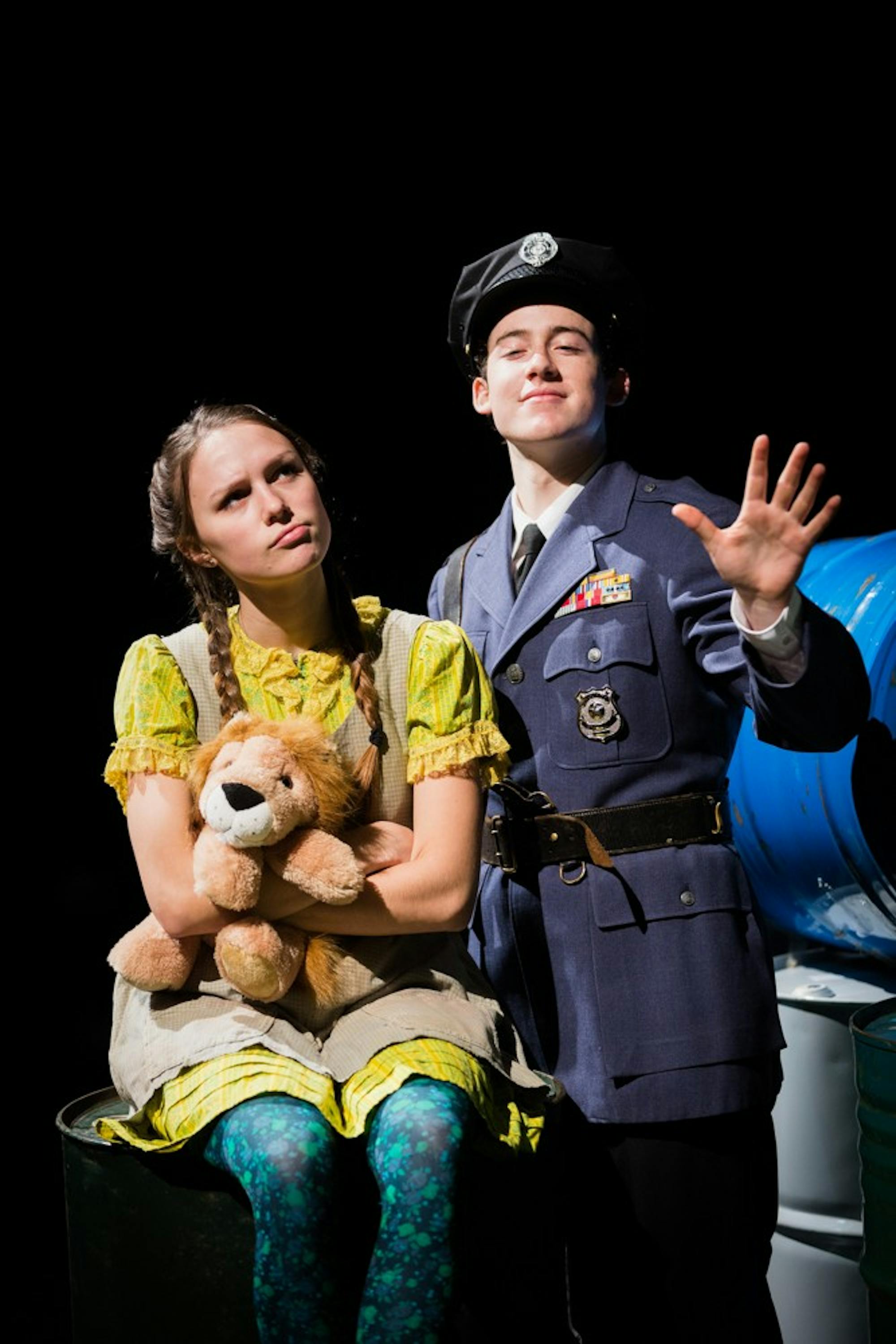A play about a dystopian society oppressed by a malevolent corporation during a harsh drought in which residents must pay to urinate does not seem to have much potential for laughs. However, the Dartmouth theater department’s presentation of the Tony-winning musical “Urinetown” promises a satirical play that is not only a laugh but also a look at contemporary issues through the lens of a theater production.
Director and theater professor James Horton said that he has been fond of and fascinated by “Urinetown” since he first saw the production in 2003. He had been looking for a musical that was fun and also had an “underbelly and a message.”
“‘Urinetown’ was the perfect fit for me because it has a very satirical tone and is a very funny musical with a really important issue at its heart,” Horton said. “The notion of sustainability and how we as human beings manage our resources to take care of our planet ... is very large and figures especially largely for me at this moment.”
Horton said that as the director, he made decisions to emphasize the musical’s nod to the work of Thomas Malthus, a scholar who wrote about the “Malthusian trap,” or the unsustainability of improvements in standards of living given rapid population growth. He said that it was a challenge for the production to bring this secondary theme into the foreground of the story, but this winter’s production attempts to do so by inserting Malthus’ quotes into the program and using barrels in the set.
“We’re trying to bring the theme to life in a small way,” he said. “The whole set is also built on barrels and human waste — barrels of waste and oil and chemical waste and nuclear waste. There’s an idea of producing [all of that] and not figuring out a way to mediate the situation and how to responsibly take care of it. That is the principal artists’ choice that is connected thematically.”
Associate scenic designer Julie Solomon ’17 said that when the design team first began speaking about the show, Horton was interested in how sustainability is a very important topic that is often lost within political discussion.
“He was interested in ways we could play up that theme, and so something that came out of this discussion was the idea of toxic waste,” Solomon said. “So the set is made up of 55-gallon barrels. It’s very urban and grungy, and we’re building off this idea of environmental destruction and waste.”
Solomon’s involvement with “Urinetown” is a two-term independent study under scenic designer Michael Ganio. She has been working on the production since the fall term, researching, designing meetings and doing initial model work, which involved making small toilets, which were ultimately not used, and the barrels that will be in the production. This term, Solomon said that she has been heavily involved with creating props for the play. For these, she has been collaborating with Ganio, finishing the prop designs he begins.
Set design is only one of the many aspects of the production that involves the work of students. The set management team of the production is also the class Theater 41, “Stage Management,” taught by theater professor Kathleen Cunneen, who has 25 years of stage management experience.
A member of the set management team, Maya Frost-Belansky ’20, said that she feels like she is part of taking something new and vague and turning it into something focused when she works on the set. The initial process of set management began with planning rehearsals and the schedules and then taking “blocking notes” during rehearsals, which consist of recording where actors walk and come on as well as making the theater space a place where the actors can work.
“Now that we’re in the space, it’s called ‘calling the show,’ which is telling the board operators and backstage crew what they need to do,” she said. “We’re putting all of the technical aspects together to work in conjunction with the actors to create the show.”
The stage management team includes Frost-Belansky, Annie Furman ’19, Nic Bergen ’20, Cameron Buxton ’19, Jordyn Fitch ’20, Kerrigan Quenemoen ’20 and Veronica Williamson ’17.
Quenemoen said that she works on the second act of the show, directing the technical light and sound cues as well as actors’ entrances and exits.
“It’s the unseen magic that sort of appears, and it’s what we’ve been working on for the past week,” she said.
Quenemoen said that one of the interesting parts of the process has been watching Horton’s direction of the actors so that they are able to understand the relevance of the musical to current events. She said that directing choices regarding character development has also been interesting, as it draws on real-life inspiration from political figures in society today, including Speaker of the House Paul Ryan.
Frost-Belansky said that an important theme of the musical is the definition of power and corruption. She said that she enjoyed the musical’s message that to be passive in the face of oppressive powers is to put oneself in a position of powerlessness.
Horton said that it is crucial that the theater department produces works of art that speak to the public and to current events. He said that in trying to contextualize the play, there will be a panel discussion entitled, “Our Dystopian Moment: 2017 and the Politics of ‘Urinetown’” at 4:30 p.m. on Feb. 21 at the top of the Hopkins Center for the Arts. Horton, Dartmouth music professor Steve Swayne and University of Massachusetts-Amherst theater scholar Daniel Sack will be on the discussion panel.
“The play is all about that — a dystopian moment,” Horton said. “Where the resources and water is gone and the people are forced to pay to pee, which is a strange concept for a funny musical. The idea for the event surrounding [the moment] is to contextualize what we feel as artists and academics in this country’s history. How does this play, which deals with a dystopian moment, echo what’s happening in our country right now?”
“Urinetown” is running in Moore Theater until Feb. 26.




